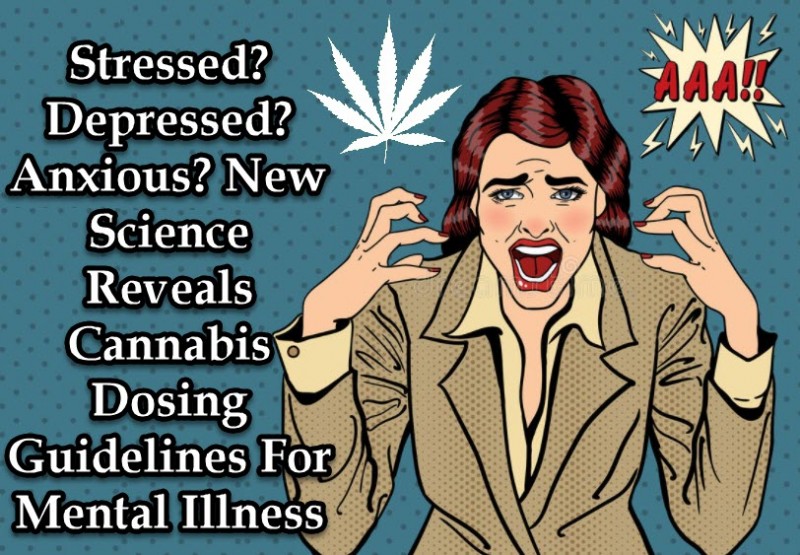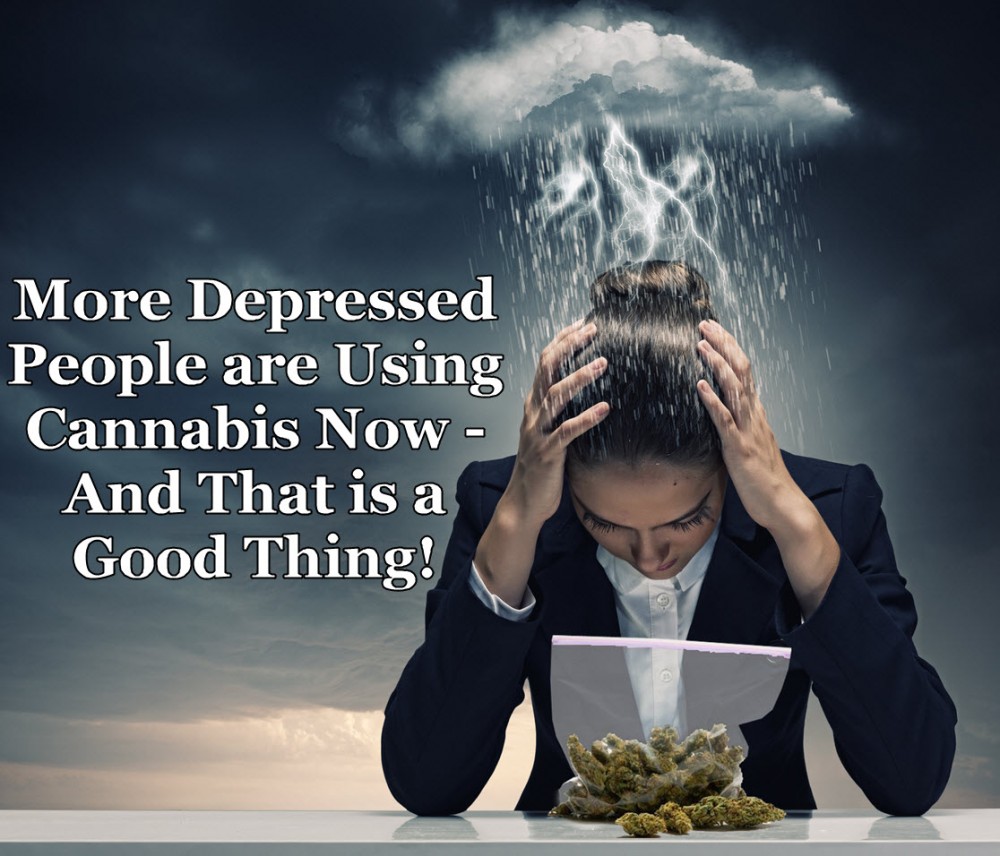Stressed? Depressed? Anxious? New Science Reveals Cannabis Dosing Guidelines For Mental Illness
New Science Reveals Marijuana Dosing Guidelines For Mental Illness, Anxiety, and Stress from CannabisNet on Vimeo.
New research sheds light on how we should be using cannabis correctly to treat mental illness.
Instead of toking up as much as you can, researchers found that one puff is all you need, but the kind of strain you choose makes a big difference.
The study, which was published in the Journal of Affective Disorders, was conducted by researchers from Washington State University. To carry out the study, they analyzed responses of over 500 medical cannabis users who logged their information onto an app called Strainprint.
Strainprint, an app available in Canada, enables users to record the strain of weed they use and how much they consumed. It also includes a functionality for users to describe how they felt after a specific dose on a scale of 1-10. They conducted a large-scale study of over 11,000 records on the app, filtering out users who turned to cannabis for depression, anxiety, and stress.
They found that users’ symptoms of depression, anxiety, and stress reduced by at least 50% within 4 hours of smoking pot.
“Existing research on the effects of cannabis on depression, anxiety, and stress are very rare and have almost exclusively been done with orally administered THC pills in a laboratory,” says Carrie Cuttler, lead author of the study and a clinical assistant professor of psychology at Washington State University. “What is unique about our study is that we looked at actual inhaled cannabis by medical marijuana patients who were using it in the comfort of their own homes as opposed to a laboratory.”
Additionally, the researchers also took a deep dive into the strain of cannabis consumed by Strainprint users, and how it impacted improvements on symptoms. They found that the most significant improvements in symptoms of depression were seen after users only consumed one puff of cannabis, which was low in THC and high in CBD. THC (tetrahydrocannabinol) is the psychoactive cannabinoid responsible for the high, while CBD (cannabidiol) is another main compound that is best known for alleviating anxiety and seizures.
For users with anxiety, they found that just two puffs of any strain was adequate in reducing symptoms; while for stress, the biggest reduction in symptoms was found after at least 10 puffs from a strain that contained high levels of THC and CBD.
“A lot of consumers seem to be under the false assumption that more THC is always better,” says Cuttler. “Our study shows that CBD is also a very important ingredient in cannabis and may augment some of the positive effects of THC.”
They also found that both males and females reported a decrease among all three symptoms after using pot, but women experienced a significantly greater decrease in anxiety after toking up.
“This is to my knowledge one of the first scientific studies to provide guidance on the strains and quantities of cannabis people should be seeking out for reducing stress, anxiety and depression,” said Cuttler. “Currently, medical and recreational cannabis users rely on the advice of bud tenders whose recommendations are based off of anecdotal not scientific evidence.”
What was surprising was that they found that long-term cannabis use for depression may make the symptoms worse. They write that “chronic use of cannabis to cope with symptoms of depression may increase the susceptibility for depression by altering the endocannabinoid system.” However, these chemical changes can be reversed in two days following abstinence, says previous studies.
The researchers also emphasize that while cannabis can help these conditions, users should take caution not to look at pot as a miracle solution (we disagree, though!).
“Importantly, while acute cannabis intoxication temporarily alleviates perceived states of depression, anxiety, and stress, the repeated use of cannabis does not appear to lead to any longer-term reductions in these symptoms,” the researchers wrote.
The Importance Of Understanding CBD:THC Ratios
We hope that more studies can shed light on how dosage can affect specific conditions. This information can greatly help patients determine the correct strain and cannabis products to use to alleviate symptoms.
The ratio of CBD:THC is an important consideration before patients with mental illness, or any condition for that matter, when purchasing their medicine. Based on what we know so far, moderate doses of a CBD:THC ratio of over 10:1 is effective in treating stress, depression, and anxiety as well as pediatric seizures.
Have you found your sweet spot in using cannabis to treat depression, anxiety, or stress? What strain have you found to be the most effective? Share your experience with us in the comments below!
New Science Reveals Marijuana Dosing Guidelines For Mental Illness, Anxiety, and Stress from CannabisNet on Vimeo.
OTHER STORIES YOU MAY ENJOY...
CANNABIS FOR DEPRESSION AND ANXIETY, CLICK HERE.
OR..
MARIJUANA FOR ANXIETY ATTACKS, READ THIS...








